Vocabulary Building Normal Reading Comprehension Worksheets for Ages 3-6
7 filtered results
-
From - To
Enhance your child's vocabulary with our engaging Vocabulary Building Normal Reading Comprehension Worksheets, designed specifically for ages 3-6. These worksheets promote early literacy skills by integrating fun activities and age-appropriate reading passages. While children enjoy colorful illustrations and relatable stories, they also learn to recognize new words, expand their language skills, and improve comprehension. Perfect for both classroom settings and at-home learning, our worksheets encourage interactive learning and support critical thinking. Help your little ones build a strong vocabulary foundation that will benefit their overall reading capabilities. Explore our collection today and inspire a love for reading!
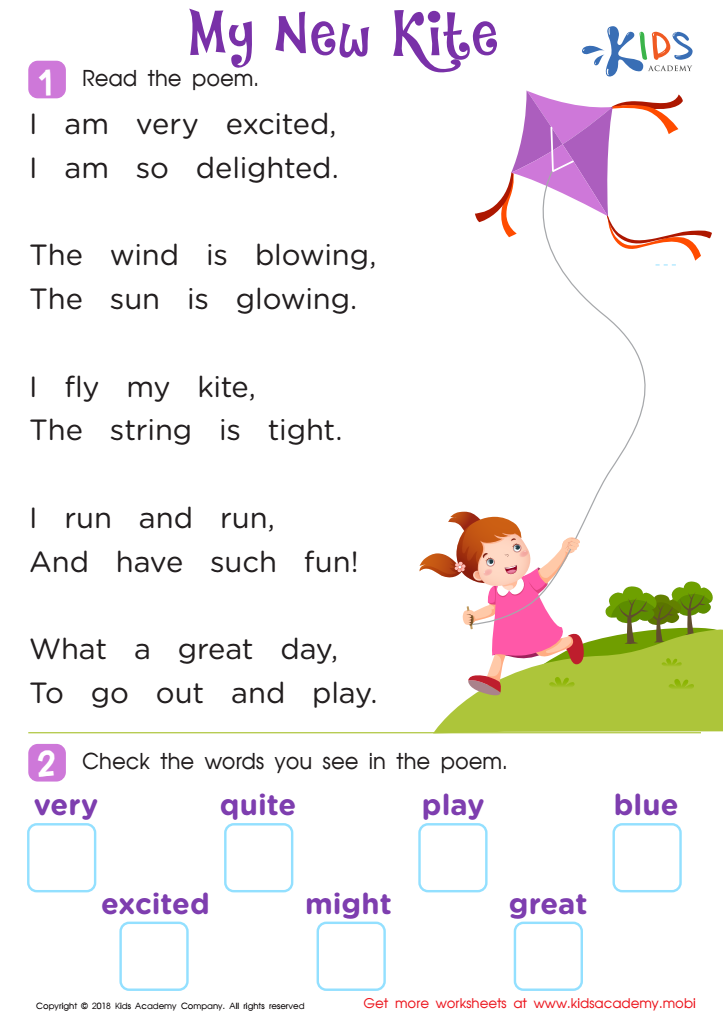

Poem: My New Kite Worksheet
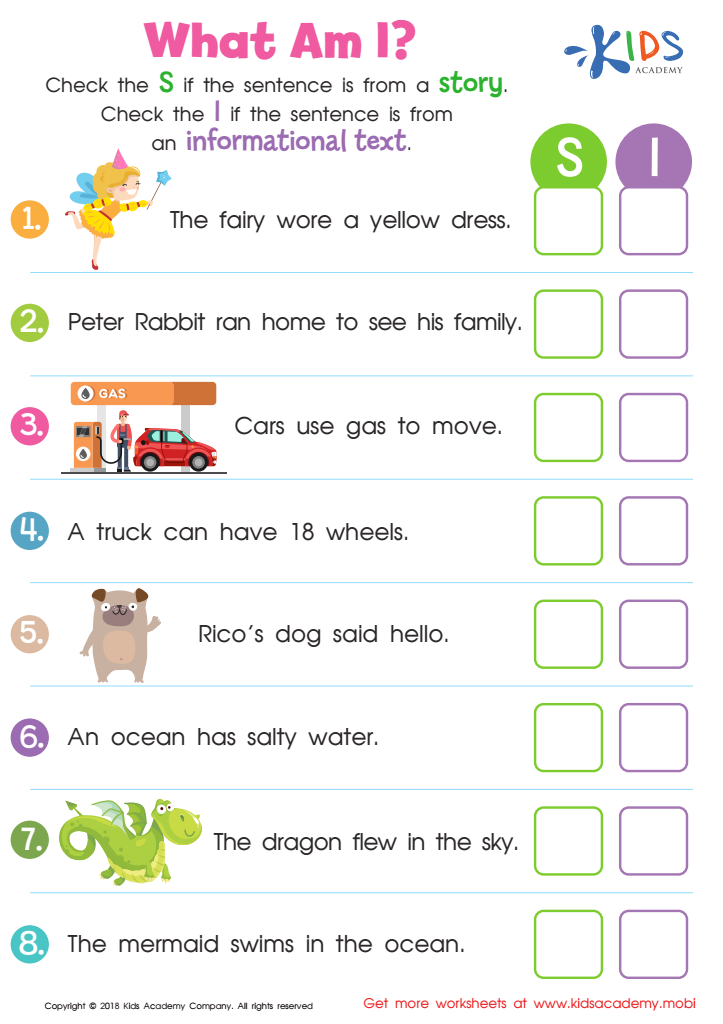

What Am I? Worksheet
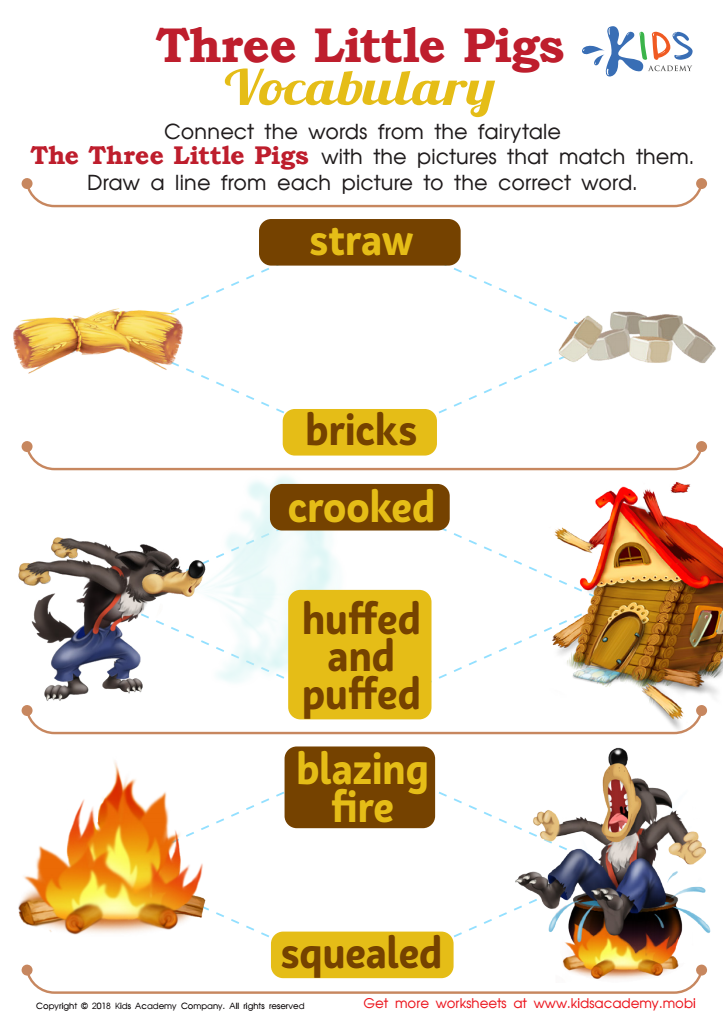

Three Little Pigs Vocabulary Worksheet
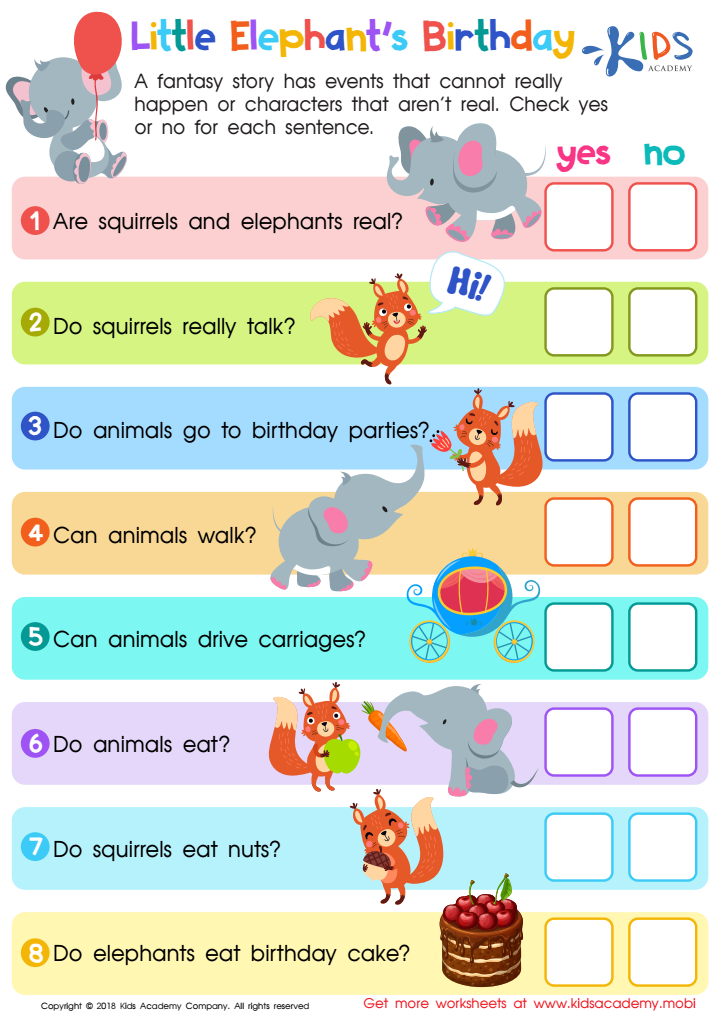

Little Elephant's Birthday Worksheet
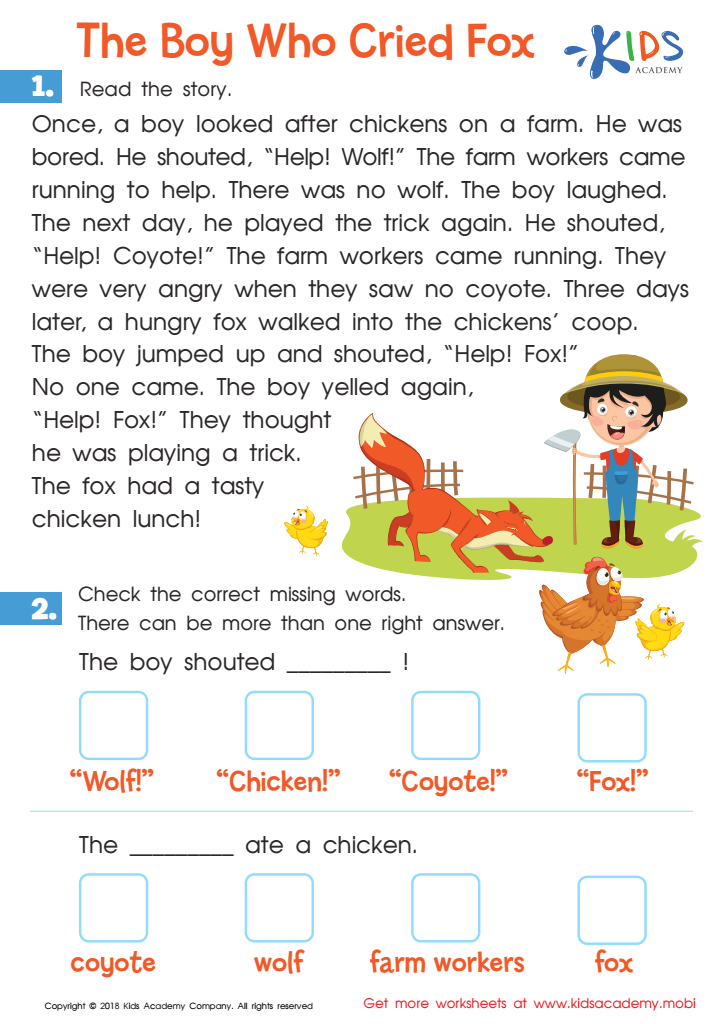

The Boy Who Cried Fox Worksheet
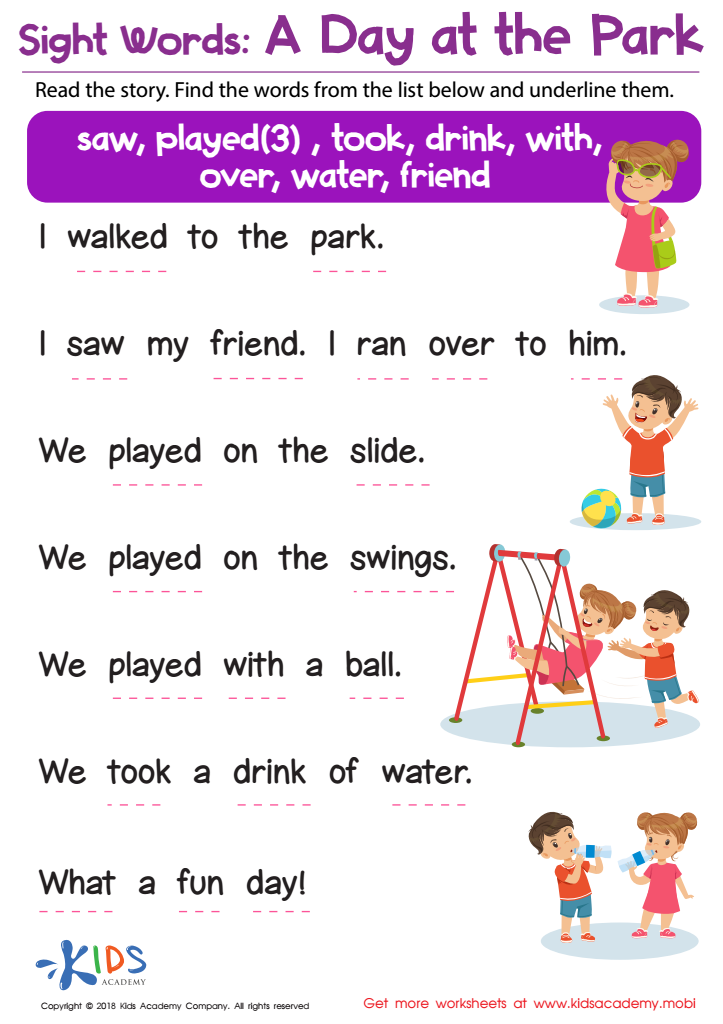

Sight Words: A Day at the Park Worksheet
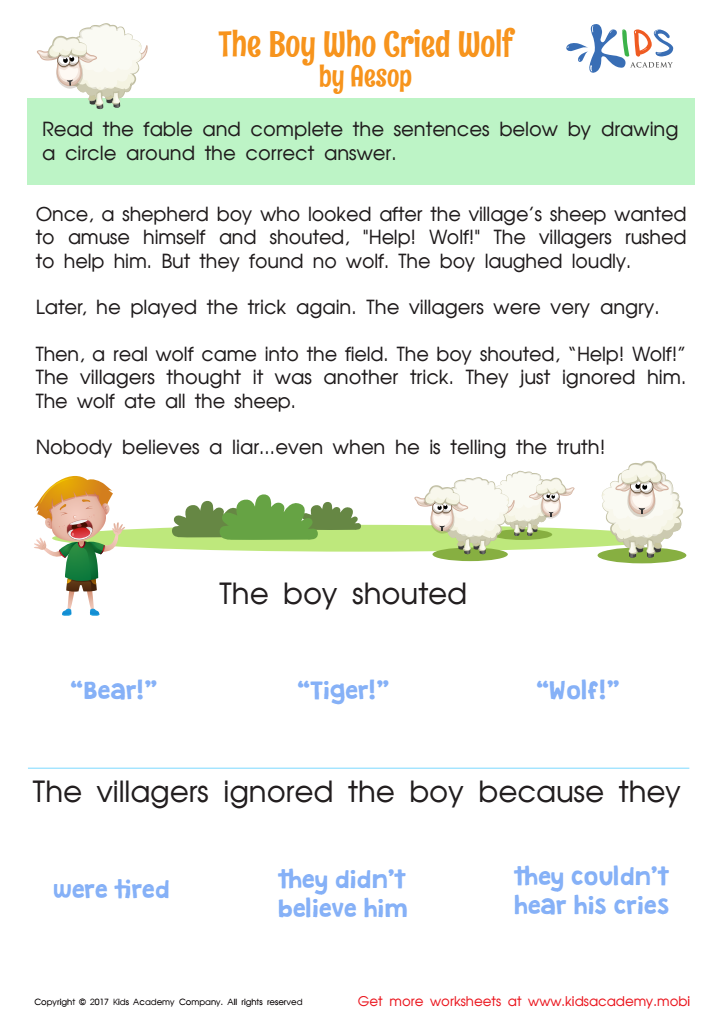

The Boy Who Cried Wolf Worksheet
Vocabulary building is crucial for reading comprehension, particularly for children aged 3-6, as this stage lays the foundation for their future academic success. During these formative years, children are highly receptive to language, and their vocabulary expands rapidly through exposure to words in various contexts. When parents and teachers prioritize vocabulary-building activities, they enhance children’s ability to decode text and derive meaning, leading to better comprehension.
Strong vocabulary skills help children express themselves clearly and understand what they read, which fosters critical thinking and cognitive development. Engaging in activities such as reading aloud, conversations, and interactive storytelling exposes young learners to diverse words and phrases, enriching their language skills.
Moreover, vocabulary plays a significant role in social development; children equipped with a robust vocabulary can communicate effectively with peers and adults, facilitating positive relationships and interactions. Overall, fostering vocabulary from an early age directly correlates with enhanced reading comprehension, setting children on a path to successful literacy skills as they progress through their education. Therefore, parents and teachers should actively engage young learners in vocabulary-rich experiences that support their overall development and preparation for lifelong learning.
 Assign to My Students
Assign to My Students





.jpg)










